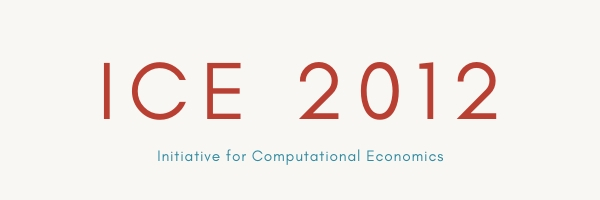
ICE 2012 Home Page — ICE Home Page — Ken Judd’s Home Page
Personnel
DIRECTOR
KENNETH JUDD, HOOVER INSTITUTION
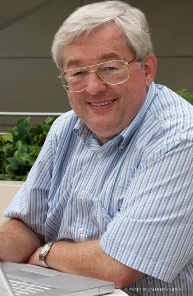
Paul H. Bauer Senior Fellow at the Hoover Institution on War, Revolution and Peace .
Ph.D., University of Wisconsin, 1980. Alfred E. Sloan Fellowship, 1985. Fellow of the Econometric Society; Elected, American Academy of Arts and Sciences, 2003.
Research Interests: Economics of taxation, tax policy, antitrust issues, imperfect competition, and mathematical economics and developing computational methods for economic modeling.
Sponsors
LARS PETER HANSEN, RESEARCH DIRECTOR, BECKER FRIEDMAN INSTITUTE, UNIVERSITY OF CHICAGO
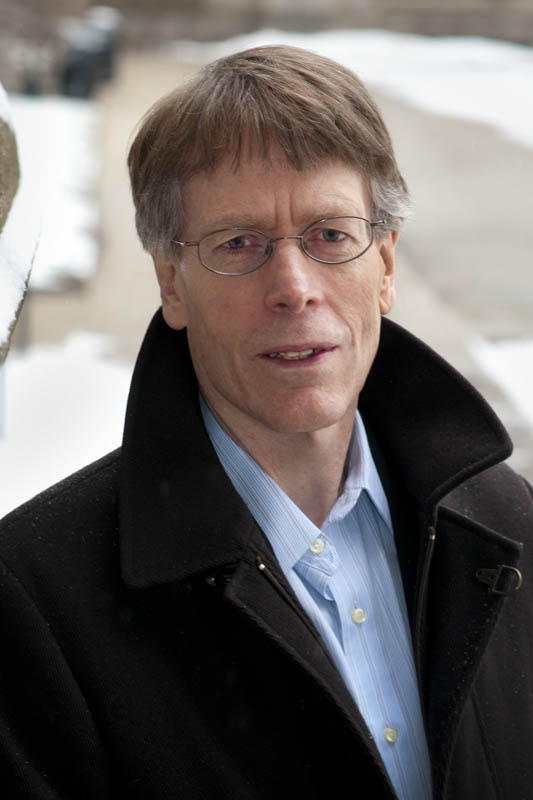
The David Rockefeller Distinguished Service Professor in Economics, Statistics and the College; Research Director of the Becker Friedman Institute for Research in Economics. Fellow, Econometric Society, 1984; Frisch Prize Medal Co-winner, 1984; Member, American Academy of Arts and Sciences, 1993; Member, National Academy of Sciences, 1999; Erwin Plein Nemmers Prize in Economics, 2006; President, Econometric Society, 2007. CME Group-MSRI Prize in Innovative Quantitative Applications, 2008.
Research Interests: Time series econometrics; quantitative analysis of dynamic equilibrium models; asset pricing.
JAMES J. HECKMAN, ECONOMICS RESEARCH CENTER, UNIVERSITY OF CHICAGO
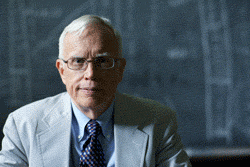
Henry Schultz Distinguished Service Professor in Economics
Ph.D., Princeton University, 1971. John Bates Clark Medal Winner, 1983; Member, National Academy of Sciences since 1992; Nobel Prize in Economic Sciences, 2000; Jacob Mincer Lifetime Acheivement Award, 2005; Dennis J. Aigner Award, 2007 and 2005. Ulysses Medal, University College Dublin, 2006. Director, Economics Research Center, Department of Economics; and Director, Center for Social Program Evaluation, Harris Graduate School of Public Policy Studies since 1973.
Research Interests: Evaluation of social programs; econometric models of discrete choice and longitudinal data; the economics of the labor market; alternative models of the distribution of income; public economics; regulation and policy reform of income inequality; the economics of the life cycle of skill formation; hedonic models and pricing of heterogeneous goods and characteristics; heterogeneity in general equilibrium models.
IAN FOSTER, COMPUTATIONAL INSTITUTE, UNIVERSITY OF CHICAGO
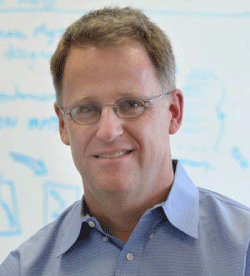
Director of the Computation Institute, the Arthur Holly Compton Distinguished Service Professor of Computer Science, Chan Soon-Shiong Scholar and Associate Director of the Mathematics and Computer Science Division at Argonne National Laboratory. PhD, Imperial College, United Kingdom.
Fellow of the American Association for the Advancement of Science, the Association for Computing Machinery, and the British Computer Society.Global Information Infrastructure (GII) Next Generation award, the British Computer Society’s Lovelace Medal, R&D Magazine’s Innovator of the Year.
Research Interests: Has lead development of methods and software that underpin many large national and international cyberinfrastructures
PRADEEP CHINTAGUNTA, CHICAGO BOOTH SCHOOL OF BUSINESS, UNIVERSITY OF CHICAGO
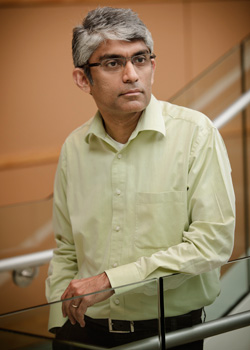
Robert Law Professor of Marketing, Booth School of Business, University of Chicago. PhD, Northwestern University, 1990.
Businessweek’s top professors at Chicago Booth, 2002; Recipient of the Hillel Einhorn Award for Excellence in Teaching, EXP (Barcelona) Program, 1999 & 2000; XP (Chicago) Program, 2000, 2003, 2005 Finalist for the O’Dell award, 1996, 2001; Finalist for the Paul Green award, 1997, 2009.
Research Interests: Analysis of household purchase behavior, pharmaceutical markets, and technology products
Organizers and Speakers
Eric Aldrich, Federal Reserve Bank of Atlanta and Duke University
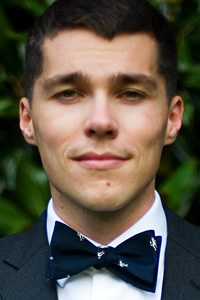
Federal Reserve Bank of Atlanta
Ph.D. Candidate (Economics), Duke University
M.S. (Statistics), University of Washington, 2005
Research Interests: Macroeconomic asset pricing, computational economics, financial econometrics and finance.
PHILIP BLOOD, PITTSBURGH SUPERCOMPUTING CENTER

Senior Scientific Specialist, Scientific Applications and User Support
Ph.D., University of Utah, 2008
Research Interests: Philip Blood received his Ph.D. in Bioengineering from the University of Utah in 2008 where he used massively parallel molecular dynamics simulations to study how proteins remodel cellular membranes. In 2007 Blood joined the Pittsburgh Supercomputing Center as a Senior Scientific Specialist in the Scientific Applications and User Support group. He currently works with scientists in the fields of computational chemistry, biophysics, bioinformatics, and various other disciplines to advance science through supercomputing. Philip has recently taken a leading role in TeraGrid’s Campus Champions program, an effort to help more researchers at U.S. institutions take advantage of the national supercomputing resources available through TeraGrid.
YONGYANG CAI, HOOVER INSTITUTION, STANFORD UNIVERSITY
Research Scientist
Ph.D. , Stanford University, 2009.
Research Interests: Computational economics, mathematical programming, numerical dynamic programming, dynamic portfolio optimization, and climate change.
MANFRED KERBER, UNIVERSITY OF BIRMINGHAM.
Senior Lecturer in Artificial Intelligence and Computer Science
Ph.D., University of Kaiserslautern, 1992
Research interests: heuristic search, automated reasoning, recently in particular in the context of applications to economics (with Colin Rowat and Christoph Lange – see ForMaRE: Formal Mathematical Reasoning in Economics)
FELIX KUBLER, UNIVERSITY OF ZURICH AND SFI
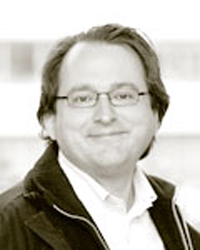
Swiss Finance Institute Professor of Financial Economics
Ph.D., Yale University, 1999.
Research Interests: Computation of equilibria General equilibrium theory Risk-Sharing Portfolio choice.
CHRISTOPH LANGE, UNIVERSITY OF BIRMINGHAM
Research Fellow
Ph.D., Jacobs University, 2011.
Research Interests: Mathematical formalisation of problems from theoretical economics such as cooperative games. Formal, but scalable, representations of complex domains.
SERGUEI MALIAR, STANFORD UNIVERSITY
Visiting Fellow, Hoover Institution, Visiting Associate Professor in Economics, Stanford University, and Professor “Catedrático” in Economics, University of Alicante
Ph.D., University Pompeu Fabra, Spain, 1999
Research Interests: Numerical Methods, Economic Theory, Macroeconomics, Economies in Transition, Economic Growth and Development
TODD MUNSON, ARGONNE NATIONAL LABORATORY

Scientist, Mathematics and Computer Science Division
Ph.D., University of Wisconsin, 2000.Enrico Fermi Scholar, 2000. Beale-Orchard-Hayes Prize, 2003; Early Career Scientist and Engineer Award, U.S. Department of Energy, 2006; Presidential Early Career Award for Scientists and Engineers, 2006.
Research Interests: Algorithms and applications of optimization and complementarity. Utilizing constrained nonlinear optimization techniques to compute mountain passes, critical points where the Hessian has exactly one negative eigenvalue. Application of optimization to the r-refinement problem, a large nonlinear, nonconvex, optimization problem. Special purpose algorithms for solving support vector machine and mesh shape-quality optimization problems.
Harry J. Paarsch
Ph.D., Stanford University, 1987.Robert Jensen Research Fellowship, Henry B. Tippie College of Business, University of Iowa, 2002–8; P.E.T.E. Teaching Award in Recognition of Professional Excellence in the Training of Economists, Department of Economics, University of Iowa, 2000–1 and 2006–7.Research Interests: numerical methods applied to problems in applied econometrics, forestry economics, and industrial organization, particularly empirical models of auctions.
COLIN ROWAT, UNIVERSITY OF BIRMINGHAM
Director, MSc in Mathematical Finance, University of Birmingham
Ph.D., University of Cambridge, 2001
Research Interests: weak property rights; cooperative game theory; automated theorem proving in economics (with Manfred Kerber and Christoph Lange – see ForMaRE: Formal Mathematical Reasoning in Economics)
Karl Schmedders, Institute for Operations Research, University of Zurich
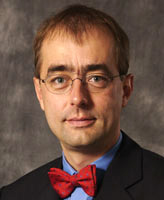
Director, Institute for Operations Research and Professor of Quantitative Business Administration
Ph.D., Stanford University, 1996.
L.G. Lavengood Professor of the Year, 2002.Research Interests: Computational Economics, General Equilibrium Theory, Asset Pricing, Portfolio Choice
Benjamin S. Skrainka, Energy Policy Institute at Chicago (EPIC), Harris School of Public Policy, University of Chicago

Ph.D., University College London, 2012.Research Interests: Computational Economics, Industrial Organization, and Econometrics. Current work focuses on efficient rules for multidimensional, numerical integration and their interaction with solvers, using large scale simulation to characterize the real world behavior of econometric estimators, using high throughput computing for dynamic programming, and merger evaluation in the UK supermarket industry.
Che-Lin Su, University of Chicago Booth School of Business
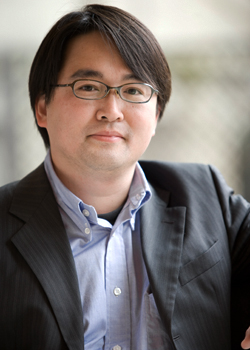
Assistant Professor, Operations Management.
Ph.D., Stanford University, 2005.Research Interests: Computational economics; mathematical programming methods for structural estimation, optimal income taxation, executive compensation design and dynamic principal-agent problems.
Greg Thain, University of Wisconsin
Sevin Yeltekin, Tepper School of Business, Carnegie Mellon University
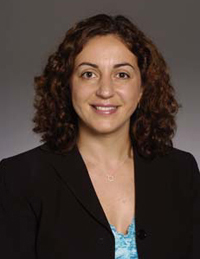
Associate Professor
Ph.D., Stanford University, 1999.Research Interests: Macroeconomics, Optimal Monetary and Fiscal Policy, Computational Economics, Repeated and Dynamic Policy Games, Mechanism Design, Political Economy.Webpage